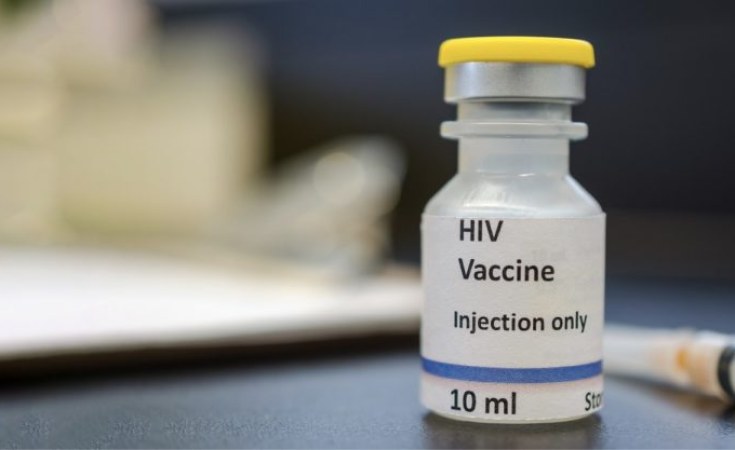The NEPWHAN coordinator, Mr Ibrahim, said from its peak of 5.8 per cent in 2001, HIV prevalence in Nigeria decreased to 1.3 per cent in 2018.
The Director-General of the National Agency for the Control of AIDs (NACA), Gambo Aliyu, has said Nigeria has the largest global fund portfolio in a single country with over $1.1 billion for 2021 to 2023 implementation.
Mr Aliyu made this known while speaking in Abuja on Tuesday at the official unveiling of a publication titled "From the darkest of days to a new dawn-35 year of the Nigerian response to HIV/AIDS".
Mr Aliyu said to support external funding, the Nigerian government also increased domestic HIV financing with 50,000 additional AntiRetrovirals (ART) annually.
He said the fund is sourced from the country's resources and the establishment of the HIV Trust Fund.
"The quicker we begin to look at domestic financial sustainability, the better for Nigeria because we do not expect donor support to continue forever," he said.
Global Fund is the world's largest financier of AIDS, Tuberculosis, and malaria prevention, treatment, and care programmes.
It's a partnership designed to accelerate the end of these epidemics in more than 100 countries.
New Dawn
Mr Aliyu said the publication is an account of the evolution of HIV in Nigeria over the past 35 years.
He said the publication is a rich inventory of insights and great lessons to guide health workers, researchers, and policymakers in addressing Nigeria's unfinished business in HIV/AIDS.
"We must close the unmet HIV treatment needs among women, children, and men."
In his remarks, UN Resident and Humanitarian Coordinator in Nigeria, Matthias Schmale, said the publication has been in the making for the last three years.
Represented by WHO country representative, Walter Mulombo, he said the project is a joint effort of the UN system working on AIDS in Nigeria, NACA, the Federal Ministry of Health (FMOH) and the Network of People Living with HIV in Nigeria (NEPWHAN).
Mr Schmale said the publication is inspired by Nigeria's exemplary early days of the response to the epidemic (1986-2004) and the 2018 Nigeria HIV/AIDS Indicator and Impact Survey--the world's largest population-based HIV survey.
He said it chronicles more than 150 people who contributed, fought, or experienced the evolution of the response at one time or another.
"It depicts the role played by the government and various key stakeholders, including development partners, people living with HIV, civil societies, and the private sector," he said.
He said the UN is proud to have been requested to support the government and people of Nigeria to document the evolution of their HIV response.
Mr Schmale said the information will help stakeholders better understand the current situation of people living with HIV and be inspired to go the last mile.
NEPWHAN coordinator hails effort
The national coordinator of NEPWHAN, Abdulkadir Ibrahim, said it's great seeing the important effort at documenting HIV/AIDS history in Nigeria come to light.
Mr Ibrahim said the publication tells the story of HIV response in Nigeria from the very beginning till date, capturing the significant progress over the past 35 years.
"With the two index cases of HIV in Lagos and Enugu 1985, the Government of Nigeria immediately sprang into action, but the response was largely uncoordinated and marked with misconceptions, denial and indifference, among others," he said.
He said the antiretroviral treatment approved globally in 1987 was beyond the means of most Nigerians. "Same for the more effective ART introduced in 1995. With these, the spread of HIV continued unabated, and resulted in many deaths across the country for many years."
Mr Ibrahim said over the years, the involvement and activities of civil society organisations in the prevention and control of HIV and AIDS in Nigeria increased significantly.
He said during this period, NEPWHAN was established in 1998 by some faith-based organisations and NGOs, and the interventions and response have been robust and inclusive ever since then.
"By 2020, the number of people living with HIV that have access to ART increased from 360,000 to about 1.5 million. From its peak of 5.8 per cent in 2001, HIV prevalence in Nigeria decreased to 1.3 per cent in 2018," he said.
He said although Nigeria consistently ranked among the countries with the largest HIV burden, tremendous progress has been made in recent times to meet the challenges of the epidemic.
"And this is why we celebrate a new dawn," he said.


